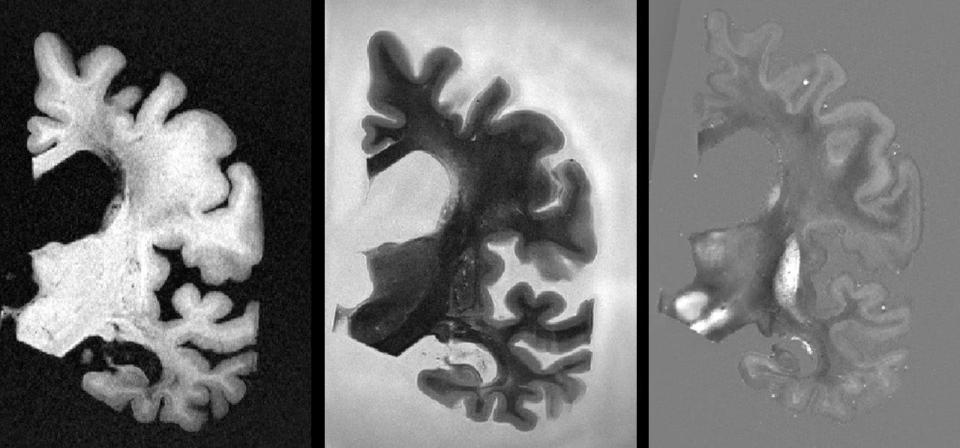A long-term objective of our research is to establish QSM as a noninvasive MRI marker for predicting neurodegeneration in AD. Our scientific premise is that QSM can measure iron overload involved in AD progression. We propose to establish QSM as an MRI marker for predicting neurodegeneration ex vivo using AD brain tissue pathology, and in vivo by correlating QSM with neurodegeneration measured via structural and metabolic MRI.
Iron quantified by QSM is a candidate biomarker for AD. Iron is elevated in brains with clinical AD and predicts cognitive decline. This promising prediction power of iron as a biomarker warrants further investigation for AD patient management. In this R21 project, the Kovanlikaya Lab seeks to obtain preliminary data through the following Specific Aims: Aim 1: Establish the QSM cellular sources in AD ex-vivo brain tissue using immunohistochemical assays of iron, microglia, beta amyloid (Aβ) and tau, and using elemental iron measurements. Aim 2: Establish QSM as a biomarker that predicts neurodegeneration measured via structural and metabolic MRI of cognitively normal subjects with Aβ pathology. In this longitudinal study, subjects will have two non-contrast MRI scans of the brain (baseline and 18 months) and cognitive assessment at each imaging visit. The relationship between QSM values and cognitive changes, CSF tau, and structural and metabolic MRI (T1w, CBF, OEF and CMRO2) within two-time points will be assessed.
This proposed project is strongly supported by our preliminary data. Its successful outcome will establish, in a timely fashion, QSM as a quantitative biomarker for AD pathogenesis, progression and treatment monitoring.


